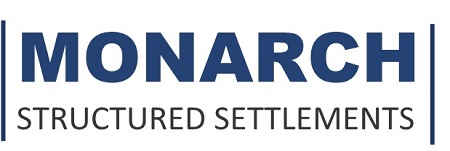January 2018 Issue
By John McCulloch, JD/MBA, FLMI
With the advent of significant changes to U.S. taxes, Monarch Structured Settlements feels it is imperative to share the below analysis of its effects on plaintiffs and defendants by John McCulloch, a highly respected attorney in our industry. Please reach out to your Monarch Consultant to learn more.
The Tax Cut and Jobs Act of 2017 (the “Act”) was signed into law by President Trump on December 22, 2017 and contains some of the most sweeping tax changes to the Internal Revenue Code seen in decades. While these changes have no direct impact on structured settlements or the taxation of most types of claims, there are a number of changes that have a significant impact on defendants and plaintiffs.
No Deduction for Amounts Paid for Sexual Harassment Subject to Nondisclosure Agreement A taxpayer generally is allowed a deduction for ordinary and necessary expenses paid or incurred in carrying on any trade or business. However, among other exceptions, there’s no deduction for: any illegal bribe, illegal kickback, or other illegal payment; certain lobbying and political expenses; any fine or similar penalty paid to a government for the violation of any law; and two-thirds of treble damage payments under the antitrust laws. Under the Act, effective for amounts paid or incurred after the enactment date, no deduction is allowed for any settlement, payout, or attorney fees related to sexual harassment or sexual abuse if such payments are subject to a nondisclosure agreement.
Author’s Note: Confidentiality and non-disclosure provisions are standard parts of sexual harassment settlements and parties, both the plaintiff and defense, need to be aware that this section will likely have a negative impact on settlement values, both directly (loss of value in the claim) and an increase in the cost of a claim settlements.
Deduction for State and Local Taxes Under the conference agreement, itemized deductions for state and local income taxes, state and local property taxes, and sales taxes would be limited to $10,000 in the aggregate (not indexed for inflation)—this cap would not apply if the taxes are incurred in carrying on a trade or business or otherwise incurred for the production of income. The effective date would be for tax years beginning after December 31, 2017.
Author’s Note: For plaintiffs receiving taxable settlements (employment, punitive, nonphysical, etc.) in high tax states this limitation could significantly erode their net settlements. It also eliminates a well-used deduction for planners when contemplating a cash settlement as opposed to a structured settlement. As effective tax rates in high state tax jurisdictions increases, the effective value of a tax-free settlement increases as well.
Repeal of Certain Miscellaneous Itemized Deductions Subject to the Two-Percent Floor Under sections 1307 and 1312 of the House bill, sec. 11045 of the Senate amendment, and Sections 62, 67 and 212 of the Code, the “Repeal of Certain Miscellaneous Itemized Deductions Subject to the Two-Percent Floor” eliminates all miscellaneous itemized deductions under Sections 62, 67 and 212 of the Internal Revenue Code. Section 212 is where cash basis plaintiff taxpayers would look for their attorney fee deduction on taxable non-employment cases. This could drastically reduce what a plaintiff receives after attorney fees and taxes from a taxable non-employment settlement. Employment settlements also appear to be impacted under the Act, as it appears the above-the-line deduction for attorney fees in Section 62(a)(20) for employment discrimination and civil rights plaintiffs is likewise eliminated. Section 62(a)(20) permits an above-the-line deduction for “any deduction allowable under this chapter for attorney fees and court costs paid by, or on behalf of, the taxpayer in connection with [employment discrimination claims].” Under the Act, a deduction under Section 212 for attorney’s fees in connection with employment discrimination claims is no longer “allowable” as a regular “below-the-line” deduction.
Author’s Note: This appears to be a prime example of a rushed tax bill and the law of unintended consequences. I doubt Congress intended to wipe out recoveries on taxable settlements, but it certainly appears that the Act effectively wipes out all attorney fee deductions. In some high state and local tax jurisdictions, a plaintiff taxpayer could theoretically end up netting zero after fees and taxes.
Increased Contributions to ABLE Accounts The conference agreement would increase the contribution limit by a designated beneficiary to ABLE accounts. The overall limit on contributions would remain the same ($14,000 for 2017). After the limit is reached, the designated beneficiary could contribute an additional amount up to the lesser of the Federal poverty line for a one-person household as determined for the preceding calendar year, or the individual’s compensation for the tax year. The designated beneficiary could claim the saver’s credit for contributions to the ABLE account.
Author’s Note: While ABLE Accounts remain in their infancy, there are close to two dozen in operation in the various states and have the potential to be an effective settlement tool on modest sized cases where the plaintiff needs to preserve Medicaid eligibility.
Repeal of Deduction for Alimony Payments and Exclusion from Gross Income Under current law, alimony and separate maintenance payments are deductible by the payor spouse and includible in income by the payee spouse. Under the conference agreement, alimony and separate maintenance payments would not be deductible by the payor spouse and would not be includible in the income of the payee spouse. The effective date of this provision is delayed by one year. Thus, it would be effective for any divorce or separation agreement executed after December 31, 2018, and for any agreement executed before but modified after that date if the modification expressly provides that this new provision applies to such modification.
Author’s Note: Alimony was never a significant possibility for structuring, as the deduction could not be accelerated by the payor even with a non-qualified assignment. While the tax-exempt status will reduce the size of overall alimony awards, non-qualified tax-free structures are now an available planning tool for the maintenance/alimony component of a marital dissolution settlement.
Estate Tax Exclusion Increase While structured settlements are exempt from federal, state and local taxes, the remaining guaranteed portion is subject to inclusion in a decedent’s estate for estate tax purposes only. Beginning in 2018 and continuing through December 31, 2025, the basic exclusion amount for estate, gift and generation-skipping transfer taxes is doubled to $10 million, indexed for inflation (in 2018, this translates to a basic exclusion amount of $11.2 million for an individual and $22.4 million for a married couple). Beginning on January 1, 2026, the basic exclusion amount for estate, gift and generation-skipping transfer taxes reverts to the current amount (i.e., $5,000,000, indexed for inflation).
Author’s Note: Estate tax liability was a real concern in larger structured settlements and has now become less so with the increase.
Restriction of 1031 Exchanges to Real Property Effective January 1, 2018, the Act restricts the tax-free exchange of investment property under Section 1031 to real property only; personal property assets will no longer qualify for Section 1031 treatment. Property no longer eligible for 1031 treatment includes vehicles, aircraft, vessels, artwork, boats, coins, franchises, copyrights, trademarks, domain names, software and licenses. Author’s Note: With billions of dollars of property grandfathered into personal and intangible 1031 exchanges, property owners who still wish to avail themselves to deferred capital gains can make use of the Structured Installment Sale product; installment sales were untouched in the Act and remain the oldest and most effective mechanism for capital gains deferral.
Exclusion from Gross Income of Amounts Received by Wrongly Incarcerated Individuals Under the PATH Act, Section 139F of the Code was created exempting from income settlement to exonerees. The Code also contains a special rule allowing individuals to make a claim for credit or refund of any overpayment of tax resulting from the exclusion, even if such claim would be disallowed under the Code or by operation of any law or rule of law (including res judicata), if the claim for credit or refund is filed before the close of the one-year period beginning on the date of enactment of the PATH Act (December 18, 2015). The Act extended that waiver on the statute of limitations with respect to filing a claim for a credit or refund of an overpayment of tax resulting from the exclusion described above for an additional year.
Author’s Note: A rare and welcome extension of time for taxpayers with taxable wrongful imprisonment settlements to file a 1040X and receive a refund on any taxes paid on their prior settlements.
Law Firms Not Eligible for Preferential 20% Deduction of Passthrough Income
For tax years beginning after December 31, 2017 a deduction for 20% of the individual’s domestic qualified business income from a partnership, S corporation, or sole proprietorship. An individual’s qualified business income for the tax year would be the net amount of domestic qualified items of income, gain, deduction, and loss with respect to the taxpayer’s “qualified business.” A qualified business generally would be any trade or business other than a “specified service trade or business.” A specified service trade or business is any trade or business activity involving the performance of services in the fields of health, law, accounting, actuarial science, performing arts, consulting, athletics, financial services, brokerage services, any trade or business the principal asset of which is the reputation or skill of one or more of its owners or employees (excluding engineering and architecture), or any business that involves the performance of services that consist investment and investment managing trading.
Author’s Note: Structured attorney fees remain a viable, albeit underused deferred income mechanism by attorneys and law firms who receive contingent compensation. With the advent of the SAI products and Met Life’s entrance into the nonqual market, there is a complete range of products for fee deferral, from zero risk (Treasuries), minimal risk (annuities) and payee risk assumption (equities and market based products).
This newsletter may not be relied upon for tax or legal advice and that plaintiffs and their attorneys should seek their own tax and/or legal advice regarding impacts from the Tax Cut & Jobs Act of 2017.


